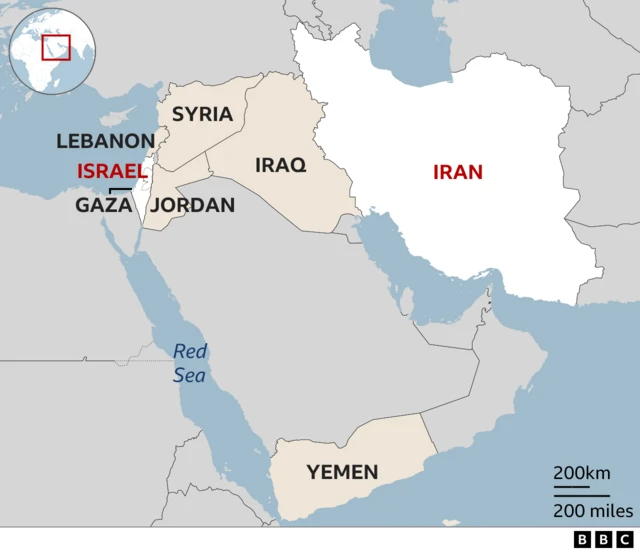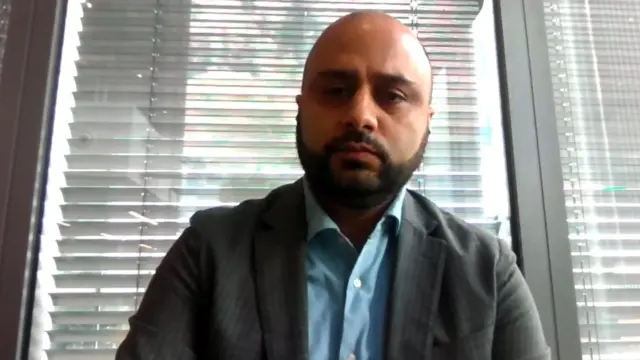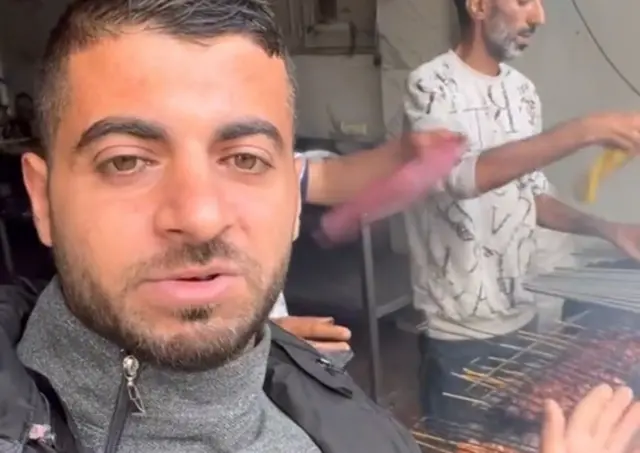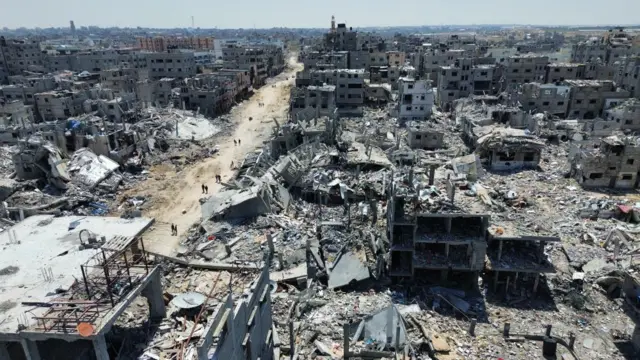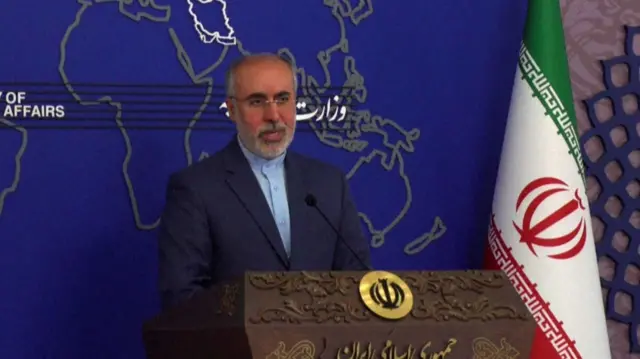How involved was the UK in defending Israel from Iran?published at 15:36 BST 15 April 2024
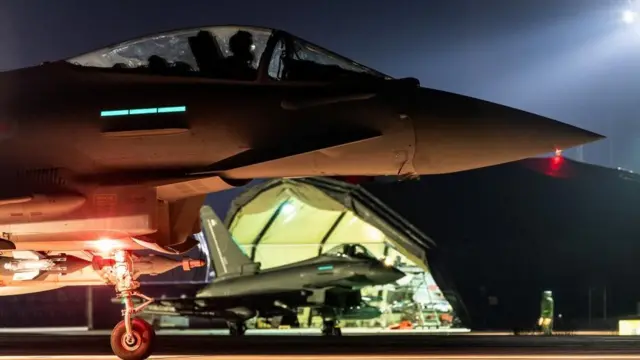 Image source, Reuters
Image source, ReutersToday we've already heard from the Foreign Secretary Lord Cameron and we'll very shortly hear from Prime Minister Rishi Sunak about the attack Iran launched against Israel on Saturday night.
They've both defended the UK's involvement in the conflict – it was one of several countries, including the US, which helped counter Iran's attack.
The Ministry of Defence said attack drones were intercepted by the RAF in Syrian and Iraqi airspace, where it was already operating as part of the Operation Shader mission against the Islamic State group.
Sunak yesterday labelled Iran's attack as "reckless", called for de-escalation and "calm heads", and pledged the UK's continued support for the security of Israel and the wider region.
Earlier today, Cameron praised the bravery and skill of the RAF pilots and called on Israel to think with its "head not its hearts" when deciding next steps.





